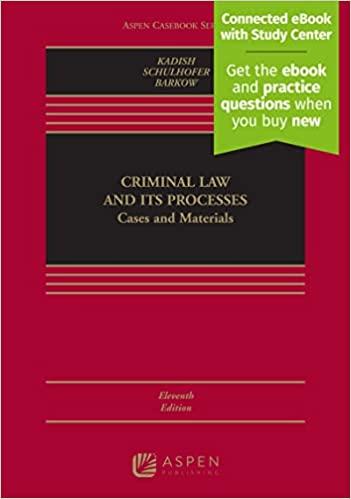Question
Stephen and Mary recently married after dating each other for four years. They want to share a life together and have a child, but Stephen
Stephen and Mary recently married after dating each other for four years. They want to share a life together and have a child, but Stephen carries a rare genetic disease, and Mary has had a hysterectomy due to uterine cancer. They have decided to execute a surrogate parenting agreement with their friends Carol and Chip. Chip feels he and Carol could use the money they would receive. Carol really doesn't care about the money and just loves having babies. She and Chip are raising their three daughters in their small five-room home, which they are hoping to remodel.
Carol signs a contract with Stephen and Mary in which Carol agreed to have an embryo implanted in her womb, to carry it full term (absent severe medical complications), and to release the child and execute a consent to adoption one week after the child's birth. Chip also signs a consent to the agreement in his capacity as Carol's husband.
The embryo will result from in vitro fertilization using egg and sperm from two unmarried donors identified by Stephen and Mary following exhaustive research concerning their backgrounds and characteristics. The donors, Bill and Barbara, each take great pride in their genetic heritage and are very honored to be selected as donors. Each is professionally successful and independently wealthy. Neither will accept payment for services as a donor. No formal, written contract is executed with the donors.
Over the course of the gestation period, several events occur:
1. Stephen and Mary develop marital problems when Stephen becomes intimately involved with his best friend, David. Mary and Stephen agree to separate and consider their respective options for the future. Each of them wants custody of the baby about to be born. David is looking forward to marrying Stephen and raising the child together.
2. Bill and Barbara meet at the fertility clinic, begin dating, and decide they should get married and seek custody of the baby about to be born. They want to protect the product of their genes and ensure that the child has the best opportunity to develop his or her potential. They claim separate and joint rights to be declared the child's parents.
3. Chip gets a promotion at work and decides he can afford to move his family to a much nicer and more spacious home, spacious enough to accommodate a fourth child. He decides that if the baby his wife is carrying is a boy, he wants to keep it. Carol also has had a change of heart. She has bonded with the fetus she is carrying and wants to keep it post-birth with or without her husband's consent.
One week after Carol gives birth to a seven-pound, eight-ounce healthy baby boy (Baby B), each of the seven parties seeks a declaration of legal parentage, and the cases are consolidated.
Using the fact pattern above drafta written memorandum addressing both the strengths and weaknesses of a potential parentage claim by Stephen in light of New York's statutes and case law governing parentage.
Step by Step Solution
There are 3 Steps involved in it
Step: 1

Get Instant Access to Expert-Tailored Solutions
See step-by-step solutions with expert insights and AI powered tools for academic success
Step: 2

Step: 3

Ace Your Homework with AI
Get the answers you need in no time with our AI-driven, step-by-step assistance
Get Started


